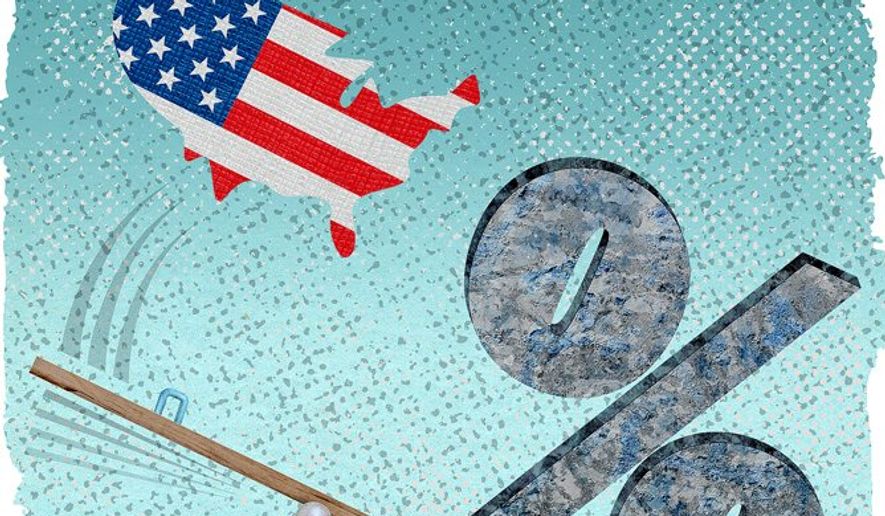OPINION:
Somehow, we the people have forgotten the founding principle of our country: No taxation without representation. We have instead accepted, with blind obedience, the burden of unconstitutional property taxes levied upon us by our municipalities.
But I propose that home and vehicle taxes can end, with the states thereafter funding social programs via state sales and income taxes. Legislative scrutiny over taxes by way of representation can be restored without damage to social programs.
How? It would require a groundbreaking “settled law” ruling by the Supreme Court of the United States. Many will dismiss this as mere tilting at windmills, but it is ultimately the court’s view that matters.
Simply stated, municipal taxation is unconstitutional, and we have been hoodwinked into believing otherwise.
The Constitution’s tax origination clause states, “All Bills for raising Revenue shall originate in the House of Representatives,” meaning that only elected representatives can levy taxes — not municipal budget-writing bureaucrats.
For decades, states have elevated state-written tax codes over the U.S. Constitution’s tax origination clause. Yet the 14th Amendment holds state operations up to federal standards, as follows: “No State shall make or enforce any law which shall abridge the privileges or immunities of citizens of the United States; nor shall any State deprive any person of life, liberty, or property, without due process of law; nor deny to any person within its jurisdiction the equal protection of the laws” and “All laws which are repugnant to the U.S. Constitution are null and void” (Marbury v. Madison, 1803).
Even with the above, since 1793, the Supreme Court has not weighed in on irregular state tax operations. This “hands-off” policy has left no controlling legal authority in place to speak on behalf of the Constitution. And so, with the cat away, the mice (the states) did play, writing state tax code without constitutional constraint. Now this neglect has come home to roost, severely eroding household finances.
Should the court decide to nullify municipal taxation through “settled law,” home and car owners would rejoice, while the state could still fund its social programs using constitutionally sanctioned taxes passed by the state’s House of Representatives.
Indirect taxes — such as income, capital gains, sales and tolls — can be raised, with our commercially dormant homes taxed only when sold.
Direct personal taxes, too, can be levied, as per: “No Direct Tax shall be laid, unless in proportion to the census.” But this means that everyone pays the same.
As things stand, our elected state representatives simply do not represent us regarding either the property tax or property-taking operations. Without speaking up for constituents, state representatives allow municipalities to impose invented taxes and “tax sale” onslaughts on their residents. And so, with the people’s representatives avoiding duty, the Supreme Court ought to consider:
• Clear sailing: With no settled law precedent boxing them in, the court stands free to explore this topic.
• Jurisdiction: “Hoodwinked” constitutes an original jurisdiction case, meaning that the Supreme Court has priority rule over the lower courts.
• In all cases affecting ambassadors, other public ministers and consuls, and those in which a state shall be party, the Supreme Court shall have original jurisdiction.
• Expressed interest: In Knick v. Township of Scott, Pennsylvania (2019), Chief Justice John Roberts wrote: “We now conclude that the state litigation requirement imposes an unjustifiable burden on the property owner’s claim that his or her land has been effectively taken for public benefit without the government paying just compensation.”
• Legal standing: Because municipalities threaten to take property without judicial involvement, “Hoodwinked” meets the Lujan v. Defenders of Wildlife (1992) test, creating standing should a case be brought before the Supreme Court.
As a remedy, the court can direct local representatives to finance state education mandates via elevated “indirect” state taxes, leaving our commercially dormant private homes and vehicles alone. Aggregated state tax receipts can be prorated to any child attending any accredited program. A supplemental “direct” poll tax of around $1,000 per adult can pay for local police and road maintenance. The state covers low-income situations.
Clearly, this is doable.
When the states themselves disparage the constitution, only the highest court can protect We the People. It is time for the Supreme Court of the United States to decide on the constitutionality of municipal taxation.
• Joe Patrina is the author of “Hoodwinked,” a U.S. Supreme Court case seeking to sunset the unconstitutional municipal home taxation and property-taking irregularities now allowed by state governors.




Please read our comment policy before commenting.